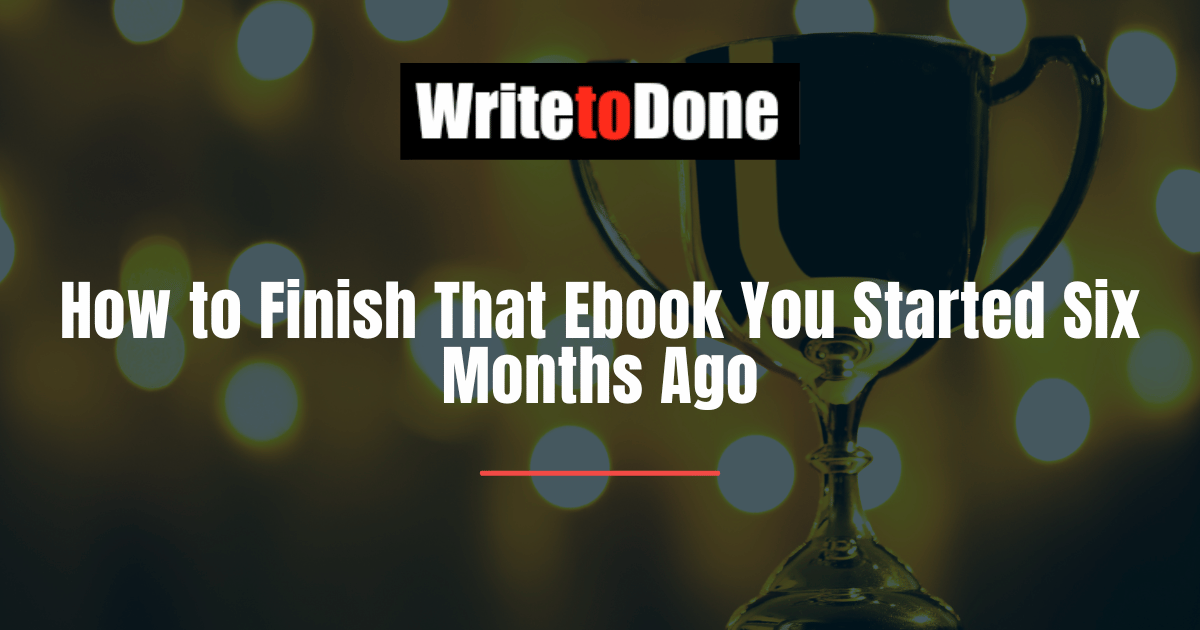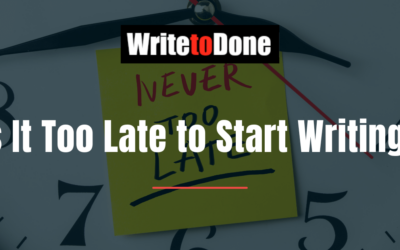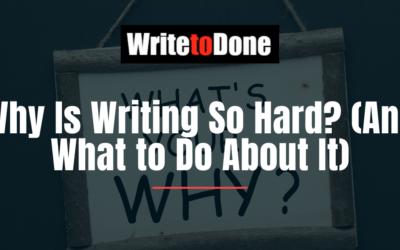
A guest post by Ali Luke of Aliventures
Admit it. Somewhere on your hard drive, there’s an abandoned document: ebook-in-progress.
You once had high hopes for it. You were going to launch it to the world, make lots of money, and bask in your new-found fame and fortune.
Except, it wasn’t quite that easy.
At some point, you put that ebook draft aside … and you haven’t picked it up since.
Maybe you think you just haven’t got it in you. Sure, you can write blog posts … but a whole ebook?
Trust me, you can finish your ebook. And here’s how:
Step #1: Look Over What You’ve Already Got
This can be a surprisingly tough step, so be prepared to feel some resistance. Push on anyway – it’s only a document, and it can’t hurt you.
Open up that file. Skim through what you’ve already written. Chances are:
- You might have done more than you remember
- You’ll have forgotten writing some of it
- Your writing will probably be better than you thought it was
Even if you’ve only written 1,000 words of your ebook, it’s a good start.
Once you’re clear about where you’d got up to, it’s time to create an outline.
Step #2: Put Together a Complete Outline
If I didn’t write outlines, I’d never finish anything. Your outline is a crucial tool for both the structure and organization of your ebook itself, and for the motivation that you feel when writing. It’s a lot easier to work from a series of bullet points than from a blank page.
Your outline doesn’t need to be insanely detailed. And it’s not even that hard to get started: just begin by creating a summary of the material that you’ve already got.
A good outline might be:
- A rough chapter heading for every chapter (you can tweak this later)
- Three to five key points that you want to cover in each chapter
For instance, if your ebook was about novel-writing, your outline might start like this:
Chapter 1: What is a Novel?
- Give a dictionary definition
- How’s it different from other forms? (Short stories, memoir, etc)
- The history of the novel
- Key types of novel today
Chapter 2: Why Write a Novel?
- Much more popular than short stories
- New publishing possibilities, e.g. as an ebook
- The desire to write and create
Step #3: Set Yourself a Deadline
Now that you’ve got your ebook planned out, you’ll be able to decide on a deadline.
A good deadline allows enough slack that you don’t give up entirely – but keeps enough pressure on you that you build up a good writing momentum.
To work out a sensible deadline, you’ll need to figure out:
- Roughly how long your ebook is going to be (work out the average word count of the chapters you’ve already written, and assume that each chapter will be that length)
- How fast you can write (if you’ve no idea, time yourself across a couple of writing sessions)
- How many hours you’ll be able to spend writing your ebook each week (aim for at least four hours)
If your deadline ends up being a very long time away, you might need to adjust your plan. Perhaps that 60-chapter ebook could be split into a series of five 12-chapter ebooks.
Step #4: Book in Your Next Three Writing Sessions
One of the reasons that your ebook ended up gathering virtual dust is because there’s never going to be a “perfect” time to write. Perhaps you were in a good routine with your blog posts … but your ebook kept getting shunted aside.
To avoid that happening again, make time for ebook-writing sessions. Put them in your calendar, and treat them as non-negotiable appointments.
Try to position your sessions during your best writing times: for me, that’s morning (I’m typing this at 9.23am) but for you, it could be afternoon, evening or late at night.
Block out your next three sessions – ideally, within the next week.
Step #5: Work Out Your Target for Each Session
Simply having “write ebook, 10am – 12 noon” on your plan isn’t going to do much for you. It’s all too easy to sit down and stare blankly at the screen … only to end up chatting on Twitter instead of writing.
Give yourself a specific target for each session. That might be “finish chapter two” or “write the first two sections of chapter five” or “revise the introduction”.
Setting your goals in advance removes the element of indecision when you sit down to write. It also helps to focus your thoughts: if you know that you’re going to be working on chapter five tomorrow, you may find that some new ideas bubble up while you’re in the bath or cooking dinner. (Keep a notebook on hand to capture these.)
Step #6: Repeat!
One week of effort isn’t going to get you a finished ebook, unless you’re working on something very short.
If you really want to finish your ebook, you need to put in consistent effort, day after day, week after week. Yes, there’ll be times when it’s not easy … but once you start making steady progress, you’ll realize that it can be done.
A half-written ebook is no good to anyone. It won’t bring you any fame or fortune, and it won’t help your readers either.
So make the decision today to finish that ebook and get it out there. You can do it – and I promise you, it’ll be a great feeling.
Ali Luke is the author of several ebooks, including the popular Blogger’s Guide series. She’s just released The Blogger’s Guide to Irresistible Ebooks, which covers the whole ebook-writing process from initial idea through to post-launch promotion. Click here to find out more about it.


















